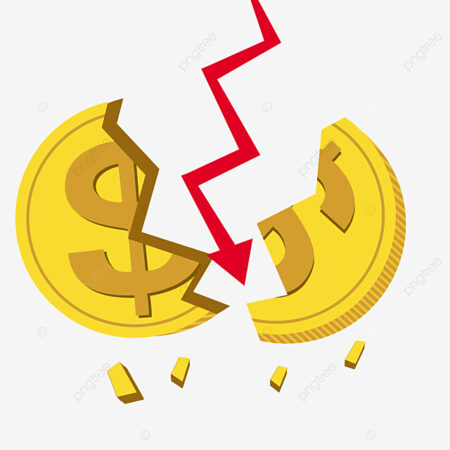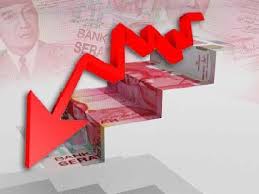Have you ever heard about the Effects of Devaluation of Currency? Or have you ever heard of the term inflation? Well, this devaluation is the opposite of inflation that you often hear about.

Devaluation means decreasing the price of one country’s currency in foreign exchange market by the government where the economy is operating under a fixed exchange rate. In other words devaluation is the official decrease in the domestic value of the currency in relation to other foreign currencies.
According to Samuelson:
“A decrease in the official price of a nation ’s currency in terms of gold is called devaluation”.
Note: Many people use the terms devaluation and depreciation interchangeably but they are different terms practically. Devaluation is a decrease in the value of money as a result of government action under fixed exchange rate system whereas depreciation is the fall in the value of money in free market exchange rate system. It can also be said that depreciation is a decrease in the value of money due to international market forces.
Effects of Devaluation of Currency.These effect can be seen from the circulation of exports and imports of products.

- Creates Inflation:
The price of raw material increases locally and internationally due to devaluation in home currency. Increased prices of raw material increase the cost of production which results in inflation.
- Increase in Defence Expenditure:
The defence expenditures of the government also increase if it buys the goods and material for defence purposes from other countries and reduces the value of currency.
- Increase in Foreign Debts:
When the government of any country reduces the value of home currency, the burden of foreign debts on it also increases.
- Decrease in Production:
The industries, which depend upon imported raw material heavily, face the problem of high cost of production. Due to increase in cost of production their output also decreases.
- Huge Amount of Capital:
The establishment of new business concerns become difficult because a huge amount of capital.
6.Increase in Export:
Devaluation results in more exports. For example a bag of wheat cost Rs. 80 in Pakistan and exchange rate is 1$ = Rs. 80. It means the foreigners can buy 1 bag of wheat from Pakistan by paying one dollar. Now suppose Pakistan devalues the currency and new exchange rate is 1$ = Rs. 160. Now foreigners can purchase 2 bags of wheat by paying only one dollar. So our products become cheaper and export increases.
7.Decrease in Imports:
If the exchange rate is 1$ = Rs. 80, it means we have to pay Rs. 80 to import a product with a price 1$. If devaluation occurs and new exchange rate become 1$ = Rs. 160 then we have to pay Rs. 160 to purchase a product pricing 1$. As a result imports become expensive and demand for imported goods decreases.
8.Favourable BOP:
As a result of devaluation export of the country increases and import decreases. It means cash inflow increases and cash outflow decreases which results in favourable balance of payments.
9.Industrial Growth:
Due to devaluation, the export of the country increases which results in more production and the profits of businessmen increases which encourages the establishment of new industries.
10.Economic Development:
Devaluation causes high demand for domestic goods in international market which results in industrial growth. Due to this, the employment opportunities and GNP increase.
Note: Here it is notable that the objective of devaluation can only be achieved if there is no retaliation on the part of foreign countries to devalue their currencies and there is no appreciable rise in the cost of production of domestic goods.